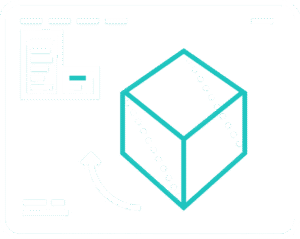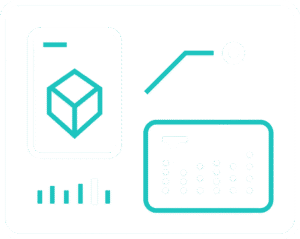
DiMAT Solutions Hub
Explore the cutting-edge digital tools for advanced material manufacturers developed by DiMAT.
Welcome to the DiMAT Solutions Hub!
The DiMAT platform is a comprehensive digital innovation hub designed to support material manufacturers, especially SMEs, in adopting advanced, user-friendly tools that enhance sustainability, efficiency, and competitiveness. Offering both cloud-based and local deployment options, the DiMAT platform enables businesses to integrate digital technologies into their workflows without the need for major upfront investments.
At the heart of the platform are 9 specialized digital toolkits, organized into 3 integrated suites: the Data & Assessment Suite, the Modeling & Design Suite, and the Simulation & Optimization Suite.
Each suite supports a different stage of the materials production lifecycle, allowing users to select the tools most relevant to their needs.
These include AI-powered design and modeling systems, simulation and optimization environments, life-cycle assessment tools, and advanced data management solutions.
Built with real industry challenges in mind, all tools are currently being validated in real-world pilot cases involving textiles, composites, glass, and other materials.
The DiMAT platform not only empowers users to make smarter, data-driven decisions, it also helps drive forward innovation and sustainability in material development and manufacturing across Europe and beyond.
DiDAS
The DiMAT Solutions & Suites
DiMAT introduces nine digital toolkits grouped in three Suites, which are applicable depending on the material production stage and the
needs of the company. Users can pick the solutions that are relevant for them, use them individually or as a group under the Suites.
DiMAT develops 3 Suites:
The DiMAT Data and Assessment Suite (DiDAS)
Includes the Cloud Materials Database, Knowledge Acquisition Framework, and MEC-LCA for efficient materials and process data management, knowledge representation, and life cycle analysis.
The solutions within this suite represent a comprehensive set of digital tools designed to harmonize and manage diverse materials and process data, model and represent relevant manufacturing knowledge, and assess data for thorough materials environmental and cost life-cycle analyses.

Currently, these tools are being tested across various use cases in materials manufacturing, integrating simulation and experimental data, as well as materials and process knowledge related to the production of textiles, composites, glass, and graphite, ultimately culminating in a comprehensive and user-friendly life-cycle analyses.
Check our solutions in the short videos below
Data and Assessment Suite (DiDAS)
Key Features

DiMAT Cloud Materials Database (DiCMDB)
A modern, semantics-based dataspace system for managing and harmonizing heterogeneous materials and process data.

DiMAT Knowledge Acquisition Framework (DiKAF)
Enables users to explore, analyze, and visualize manufacturing materials and related processes through an intuitive Knowledge Graph (KG).
In this way, it captures the relationships between materials, manufacturing devices, and business processes, simplifying, in this way, information retrieval and providing useful insights through advanced analytics and interactive visualizations.

DiMAT Materials Environmental
& Cost Life Cycle Assessment (DiMEC-LCA)
Is a tool designed to provide high-level assessments of the environmental and economic impact of industrial processes.
Through clear graphical representations, MEC-LCA simplifies complex data, providing insights into environmental impacts such as carbon emissions, resource usage, and waste, as well as cost-related aspects like energy consumption and production efficiency.
This empowers businesses to easily interpret results, identify key hotspots, and make informed, sustainable decisions
DiMAT Modeling and Design Suite (DiMDS)
The Suite includes 3 toolkits:
- DiMAT Material Design Framework (MDF)
- DiMAT Materials Modeler (MM)
- DiMAT Materials Designer (MD)
for advanced modeling, prediction, and material design.
Material Design Framework is a versatile ontology-based knowledge-system that assists engineers in the complex task of materials modelling and design.
It enables users at exploring databases to find suitable materials data, identify correlations within that data and determine the appropriate materials modelling approaches to accurately describe the behaviour of the materials of interest.
DiMAT Materials Modeler toolkit is training its AI models to help the users in predictions on material selections and manufacturing processes.

Within the DiMAT internal usecases, the toolkit is used by companies in finding the optimal mixing of polymers and additives to obtain the requested rheological performances of the compound to be extruded. Also, its AI assistant is already working to help the companies to process their data. Users will be able to explore feature importance, causal inferences, and generate insightful data outputs, enhancing the understanding of microstructure mechanisms.
DiMAT Materials Designer toolkit toolkit has been used to execute virtual testing and assess the properties of both traditional and recycled composite materials that will be used to manufacture components for drones. The possibility of making side-by-side comparisons is particularly effective for a rapid assessment of different solutions.
Modelling and Design Suite (DiMDS)
Key Features

DiMAT Materials Design Framework (DiMDF)
An ontology-based knowledge system that empowers engineers to efficiently model and design materials by providing essential data and insights.

DiMAT Materials Modeler (DiMM)

DiMAT Materials Designer (DiMD)
This toolkit helps create materials with new properties by modifying and combining various constituents and additives.
It offers advanced simulation capabilities in a user-friendly interface, giving the user the ability to compare several designs and select the optimal material configuration based on its mechanical and thermal performances.
DiMAT Modeling and Design Suite (DiMDS)
The Suite includes 3 toolkits:
- DiMAT Materials Mechanical Properties Simulator (MMPS)
- DiMAT Materials Processing Simulator (MPS)
- DiMAT Digital Twin for Process Control (DTPC)
to enhance simulation, prediction and optimisation.
The solutions within this suite represent a set of easy-to-use digital tools for material manufacturing simulation and material behavior prediction, together with a digital twin for process monitoring and optimization. These toolkits are based on open-source software, ensuring flexibility and adaptability, and they can also be deployed as a cloud system for seamless access and scalability.

The functionalities of these digital tools have been tested in real pilot use cases, such as multiscale textile polymer industrial production, including different phases of the process such as compounding, spinning, braiding, and final product elaboration; the process modelling of composite manufacturing; the bending glass process simulation, and the application of digital twin to the analysis of furnace surfaces for the bending glass process.
Simulation and Optimization Suite (DiSOS)
Key Features

DiMAT Materials Mechanical Properties Simulator (DiMMS)
It is designed to help businesses accurately determine the mechanical properties of materials, including stiffness, tensile strength, and fatigue resistance. With advanced numerical simulations, it provides deep insights into key characteristics such as plasticity, viscoelastic and viscoplastic behavior, damage, and fracture mechanics.
By transforming complex data into actionable insights, DiMMS enables companies to optimize material performance, enhance product durability, and make informed engineering decisions with confidence.

DiMAT Materials Processing Simulator (DiMPS)
Simulator for manufacturing conditions, processes, and optimization.
The DiMAT Materials Processing Simulator (DiMPS) is a digital toolkit designed to recreate manufacturing processes to predict materials’ behaviour when modifying the process parameters.
The manufacturing processes simulation is generated by open-source programs that involve specific CAD geometry and boundary conditions using finite element Analysis (FEA) and computational fluid dynamics (CFD).

DiMAT Digital Twin for Process Control (DiDTPC)
The Digital Twin for Process Control (DiDTPC) toolkit supports monitoring, forecasting, and control of industrial processes by providing a set of digital twins that act as abstractions of IoT devices.
It helps businesses optimize operations through interactive dashboards, automated alerts, and seamless communication with physical machinery for improved efficiency and precise process control.
User Feedback
Share your feedback with us!
Do you want to receive more information about the availability of the solution?
Contact Us
Would you like access to our solutions and tutorial?
You can speak with our solutions provider!
Reach out by sending us an email:

